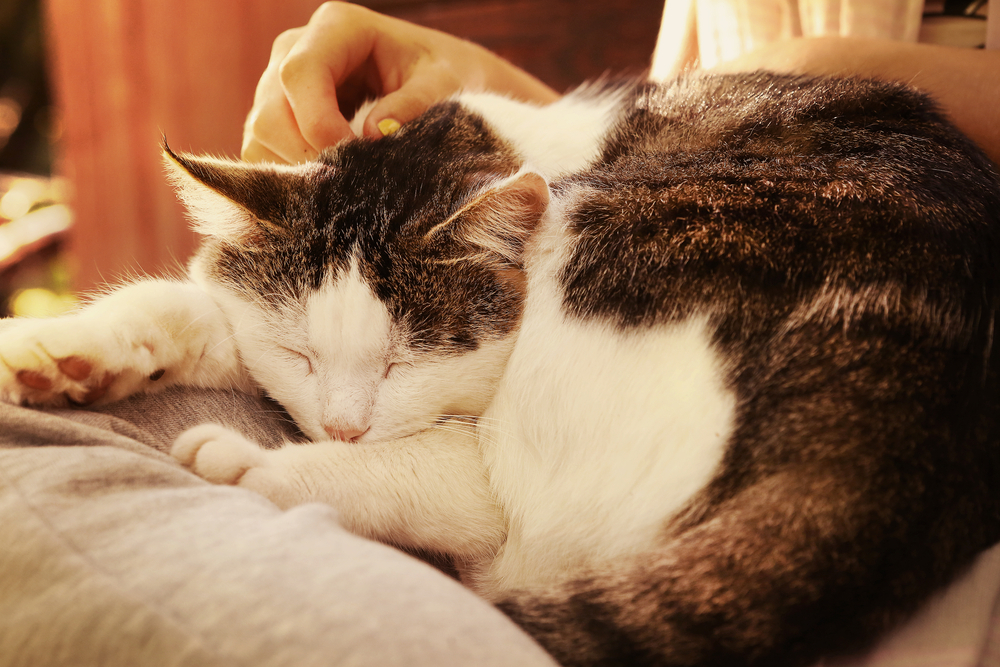Pets are living longer, and while we all want more time with our four-legged friends, increased longevity increases their risk of developing cognitive dysfunction. Similar to humans, a pet’s cognitive function can decline as they age, and the condition can negatively affect your pet’s quality of life and disrupt your household. Our Star of Texas Veterinary Hospital team knows how much you value your time with your pet, and we provide information about cognitive dysfunction in pets and how the condition is managed.
Cognitive dysfunction basics in pets
Cognitive dysfunction in pets is similar to Alzheimer’s disease in humans. Decreased cerebral blood flow and chronic free radical damage contribute to changes observed in pets affected by cognitive dysfunction. Issues such as vascular changes, heart disease, anemia, and hypertension lead to decreased cerebral blood flow. As cells age, they become less efficient, producing less energy and more free radicals, which are unstable atoms that are damaging to cells. The brain is especially susceptible to injury from free radicals because the tissue is high in fat, requires a large amount of oxygen, and has a limited ability to heal. Brain abnormalities commonly seen in pets affected by cognitive dysfunction include:
- Reduced brain mass — Parts of the brain, such as the cerebral cortex and basal ganglia, appear to atrophy.
- Reduced brain cells — The number of brain cells, called neurons, are reduced.
- Scarring — The tissue that protects the brain, called the meninges, becomes fibrotic and calcified.
- Beta-amyloid plaques — Beta-amyloid proteins clump together to form plaques that disrupt neuron function.
Cognitive dysfunction signs in pets
Your pet’s cognitive dysfunction risk increases as they age. One study demonstrated that cognitive dysfunction affected about 28% of dogs 11 to 12 years of age and 68% of dogs 15 to 16 years of age. The condition affects a pet’s memories and ability to learn. Signs are varied and include:
- Disorientation — Affected pets may get lost in familiar places or not recognize familiar people and pets.
- Interactions — Pets may interact differently with their owner. Some pets hide more and avoid contact, while others become more needy and attached.
- Sleep cycle changes — The pet’s sleep/wake cycles are commonly affected, causing them to sleep more during the day and be awake at night.
- House soiling — Many affected pets forget their training. Dogs may forget to signal that they need to go outside and instead eliminate indoors, and cats may stop using their litter box.
- Activity levels — Affected pets may be less interested in play, and they often become restless, wandering aimlessly. In addition, some pets develop obsessive, repetitive behaviors such as licking.
- Anxiety — Cognitive dysfunction often causes pets to be more anxious, which may be expressed by vocalization, excessive panting, destructive behavior, and clinginess.
- Learning and memory — Affected pets may forget known commands, and they typically have a hard time adjusting to changes in their environment.

Cognitive dysfunction diagnosis in pets
No test is available to definitively diagnose cognitive dysfunction in pets. If your pet exhibits signs that may indicate cognitive dysfunction, diagnostics must be performed to rule out other potential causes, such as blindness, hearing loss, endocrine disorders, kidney disease, arthritis, and dental disease. Possible diagnostics include:
- History — Our veterinary team will ask you to provide a detailed history of your pet’s behavior and actions.
- Physical examination — We will evaluate your pet from head to toe, checking for abnormalities, such as cataracts or joint pain, that may be responsible for your pet’s signs.
- Blood work — We may recommend blood work, including a complete blood count, biochemistry profile, and a thyroid panel.
- Urinalysis — Evaluating your pet’s urine can tell our team a lot about your pet’s health.
- X-ray and ultrasound — We may recommend an X-ray or ultrasound to assess your pet’s condition.
- Magnetic resonance imaging (MRI) — In some cases, brain changes associated with cognitive dysfunction can be detected by an MRI, and we may recommend this imaging technique if we are concerned about a condition such as brain cancer.
Cognitive dysfunction management in pets
Cognitive dysfunction can’t be cured, but the disease’s progression can be slowed with proper management such as:
- Prescription diet — Veterinary prescription diets, which contain antioxidants and essential fatty acids, typically are recommended for pets affected by cognitive dysfunction.
- Dietary supplements — Our veterinary team may recommend dietary supplements to provide energy for your pet’s brain to help improve function.
- Cognitive enrichment — Cognitive enrichment, such as physical exercise, social interactions, introduction of new toys, and teaching new tricks, can slow disease progression.
- Environmental modification — Environmental modifications also may be necessary, including:
- Providing more opportunities for your dog to go outside
- Providing an indoor elimination area
- Placing additional litter boxes throughout your home
- Ensuring your senior pet can escape children and other pets in the home
- Increasing your pet’s daytime exercise if they remain awake during the night
- Adhering to a firm schedule for walking, feeding, and bedtime
- Avoiding moving furniture so your pet doesn’t become confused
- Drugs — Medications to improve neuron function, protect the brain from oxidative damage, and increase cerebral blood flow also may be recommended. In addition, we may prescribe anti-anxiety medications if indicated.
Cognitive dysfunction can be upsetting for you and your pet. If your pet acts disoriented or forgets their training, contact our Fear Free team at Star of Texas Veterinary Hospital so we can determine if cognitive dysfunction is contributing to the problem.






